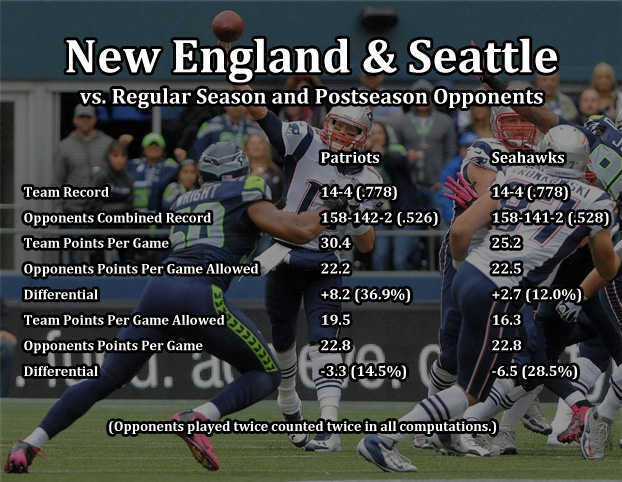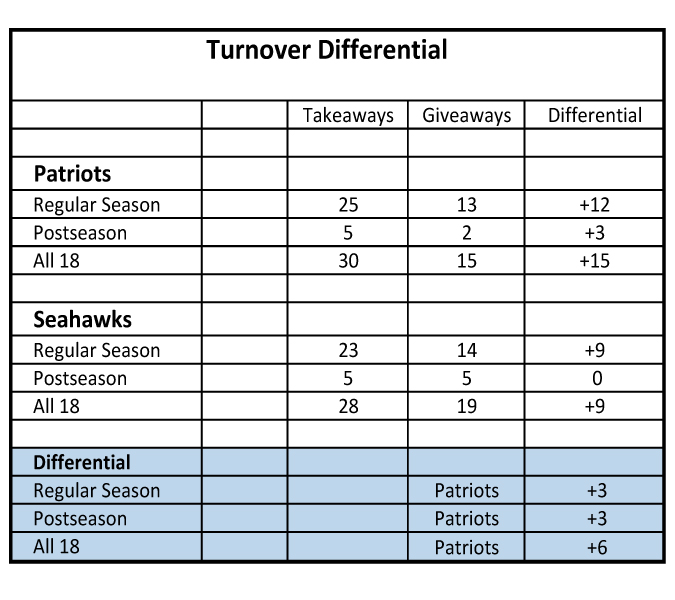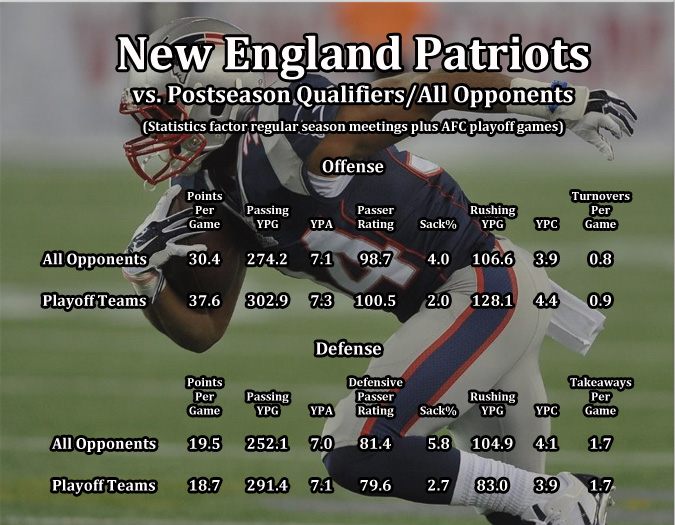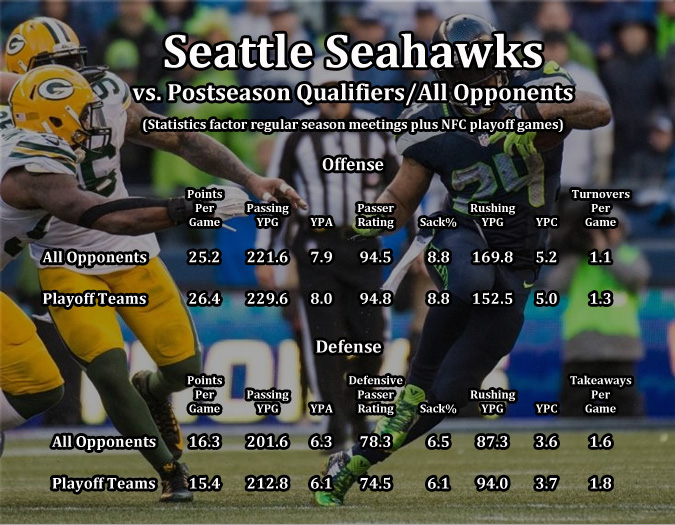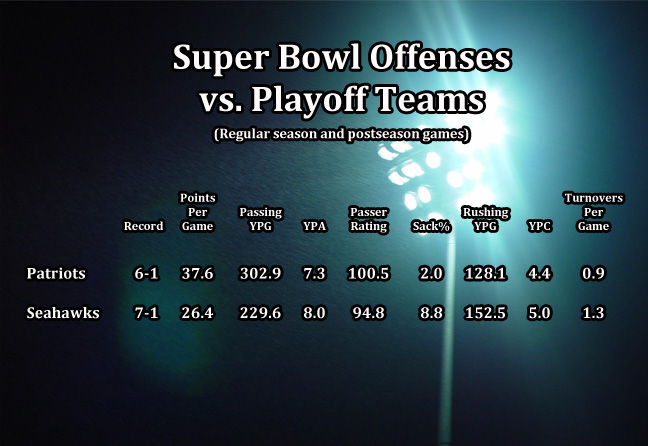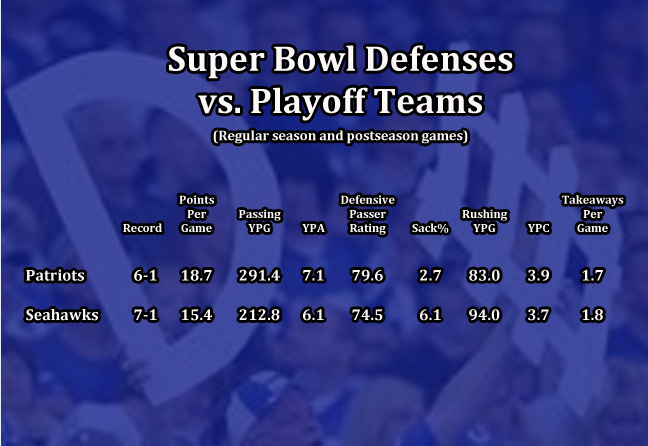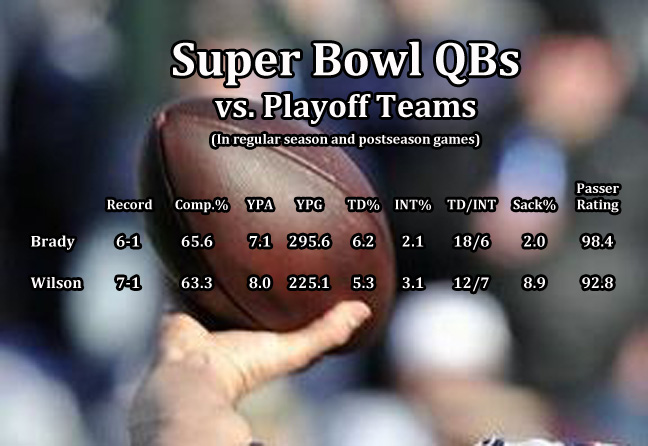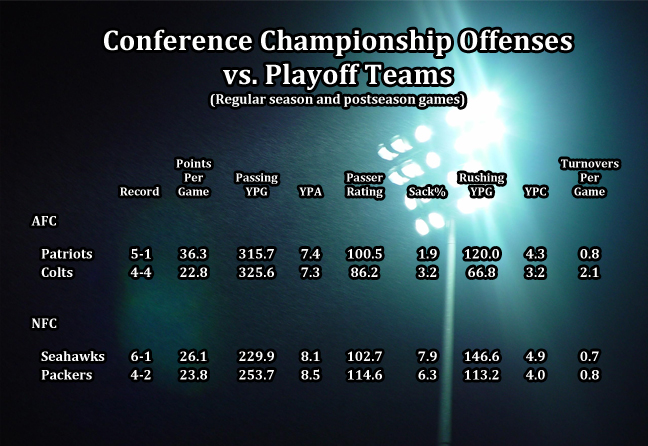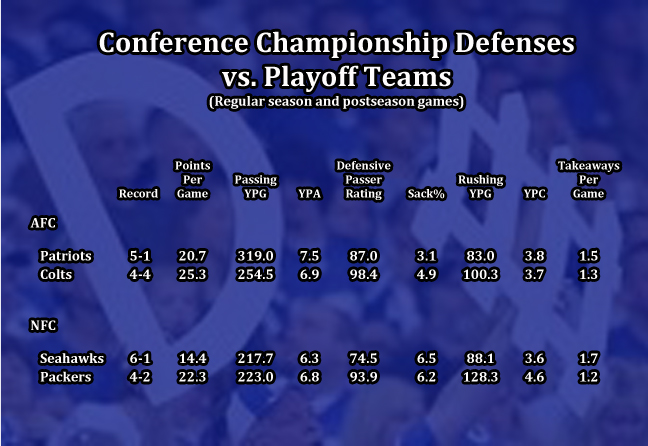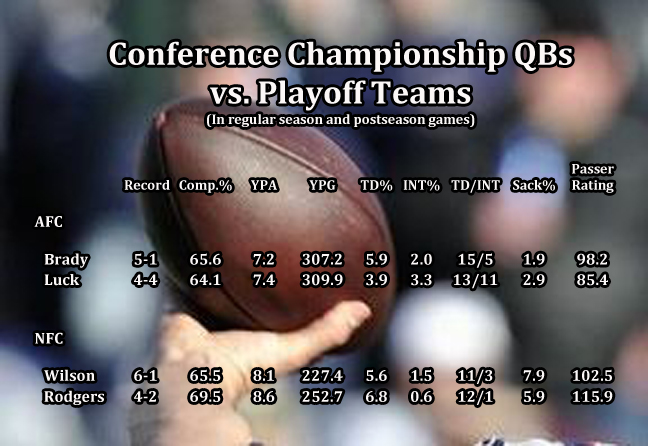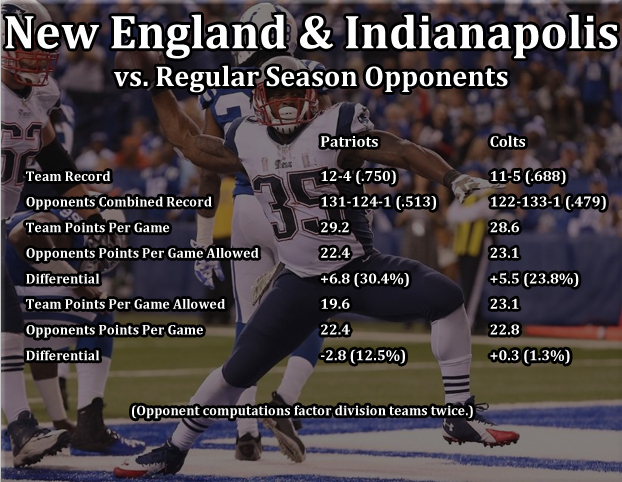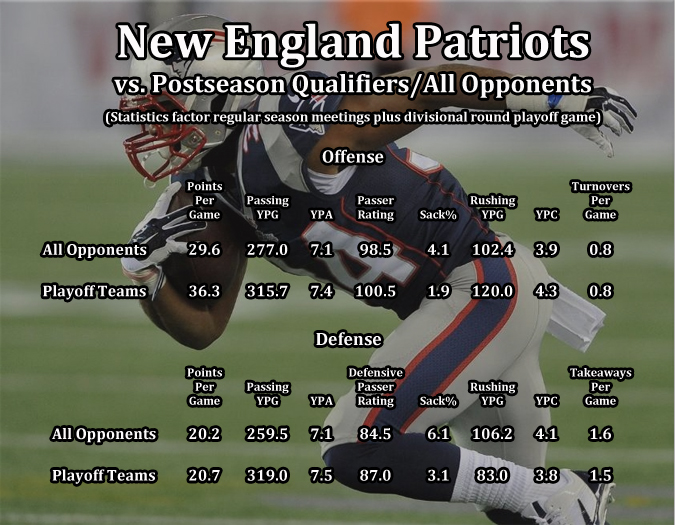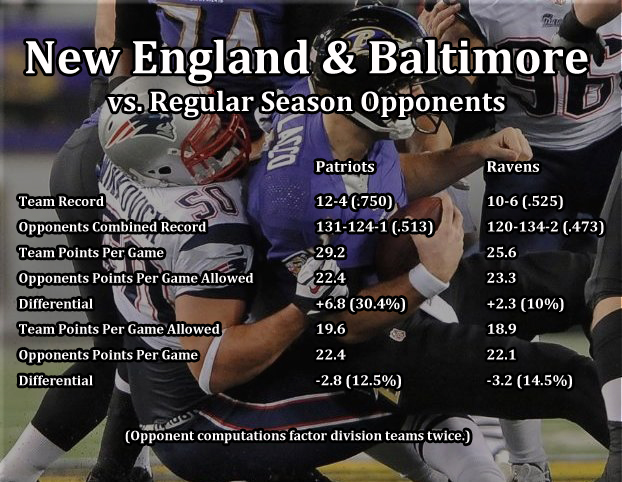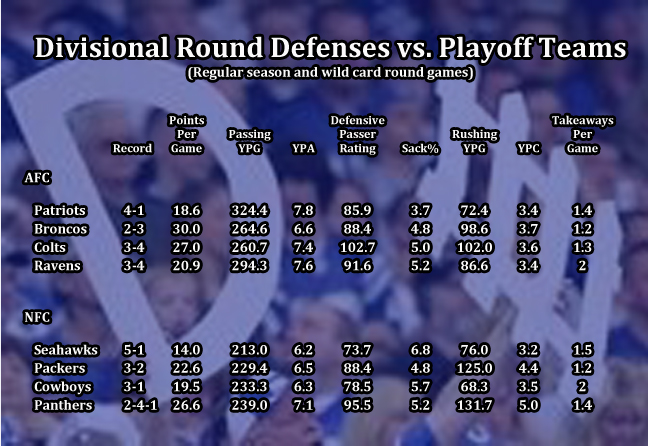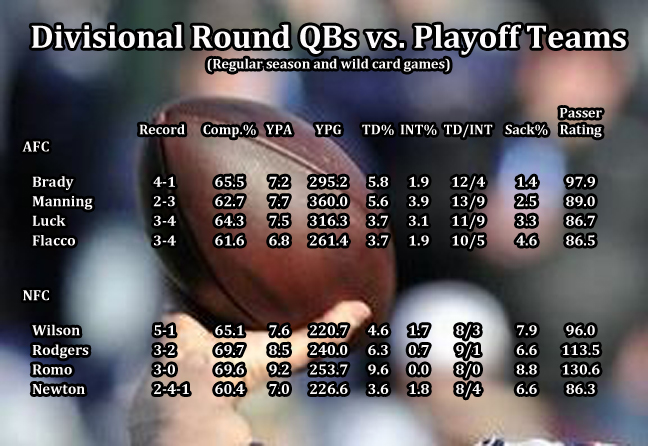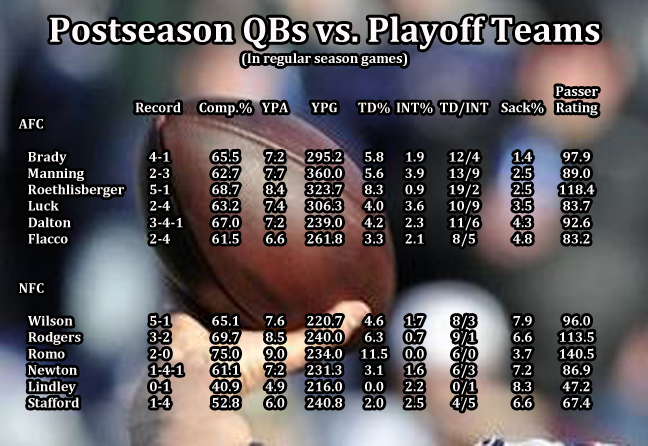Super Bowl XLIX Pick
Let me just get this out of the way quickly before I get to the big game. I was better against the spread than I was picking straight up once again on conference championship Sunday. That makes twice. In a season. And in a row. But, you know, small sample size and all that. I went 1-1 straight up (thanks to the Packers’ collapse), bringing me to 173-89 on the year. And I was 2-0 against the spread, which got me to (ugh) 123-135-4. Just one more chance to get everything wrong. So here we go. What not to expect in Super Bowl XLIX.
New England (-1) vs Seattle
The Patriots aren’t winning this game because they’re angry about Deflategate. They’re not winning this thing because they’re due. Or because Tom Brady and Bill Belichick need it to cement their legacies. (If you think for a second the opportunity to cement a legacy has any bearing on the outcome of a game like this, I advise you to revisit Super Bowl XLVIII.) Similarly, the Seahawks aren’t winning because they’re a “team of destiny,” the NFL‘s next great dynasty rising. Neither is Seattle winning because karma’s on the Seahawks’ side, or because the football gods are out to smite New England. That’s Super Bowl party conversation stuff. It has nothing to do with how a game is decided.
These teams have made it to this point because they are the best in their conferences. And they at least appear to be very evenly matched.
So, as usual, the team that wins (this may come as a shock for the more media-saturated among you) will be the one that brings in the better game plan and executes better on the field. I know, right?
As I see it, there’s next to no margin for error in this game. Seriously, this looks to me like the kind of game that can turn on a single takeaway. That’s one bad decision. One nervous mistake. One unlucky bounce of the ball. Which way does that go? I don’t know. I don’t remember the last time I had so little ability even to guess. Because both of these teams excel at creating turnovers. And, for the most part, both excel at holding onto the ball. (Hope for what you will, Patriots fans, but I don’t envision the Seahawks committing multiple turnovers in a second straight game.) Let’s look at what the stats and trends say.
That at least would appear to favor New England. But only slightly.
Same goes for the other typical predictive stats. I’m not going to do charts for those, simply because the calculations are a bit more complicated. You can take my word for this or not. (Or go ahead and do the math yourself. It’s fun if you’re sort of a little bit crazy.)
Scoring Differential
Regular season: Patriots +0.5
Postseason: Patriots +6.0
All 18: Patriots +1.0
Passer Rating Differential
Regular season: Seahawks +0.6
Postseason: Patriots +10.5
All 18: Patriots +0.8
I normally feel pretty good about a team that comes out on top in two out of three of those categories. And what we see (for the most part, and certainly in the postseason and all 18 numbers, which are what matter most) are the Patriots coming out at least slightly ahead.
But, you know, this stuff only ever gets you so far in reality football. And it all still leaves one to try to reach some tough conclusions about what’s likely to happen on the field of play.
And that remains difficult, in no small part because both of these teams have stepped up when they’ve faced their toughest opposition.
But I’ve got to come up with something, because, well, I brought you hear on a promise. So here’s what I’m thinking.
Although what you’ve heard about, and what you’ll continue to hear about, is that this game is about the powerhouse New England offense vs. the stifling Seattle defense, I’m not sure that’s what it comes down to.
The Seahawks are going to find ways to make some big stops. And the Patriots are still going to find ways to put points on the board. I don’t think you’ll see the Patriots accomplish that with the types of offensive twists we’ve seen them pull out this season. The Seattle D is smart and unwavering. Those players aren’t likely to be thrown off by odd formations. And they’re not going to fall for trick plays. I think the Patriots succeed against Seattle’s conservative, physical style of defense with a conservative, physical style of offense. That is, they move the ball by throwing LeGarrette Blount at the Seahawks defensive front repeatedly, forcing Seattle to commit to stopping the run. And they use short, crossing routes to keep the ball moving through the air. (This, of course, unless it turns out Richard Sherman‘s injured wing is worse than expected, in which case I can’t see how Tom Brady doesn’t try to make something happen downfield.) Not exactly rocket science, I know. But I don’t think this is a rocket science kind of game. It’s about fundamentals. And while the Patriots aren’t going to employ fundamentals to put up the 45 they scored against the Colts in the AFC Championship, or even the 35 they dropped on the Ravens in the divisional round, I think that if they execute well, they can get into the high 20s.
And that’s where I think we get to the difference in this game, which is the Patriots defense against the Seahawks offense.
I’ve never bought into the idea that defense wins championships. I mean, it does. But not in the way people think. It looks like defense wins championships, because we spend the whole regular season marveling at offensive fireworks only to have defense become a factor in the postseason when the level of competition evens out and the teams that are all about O (like, say, the Colts) run into teams that can get it done on both sides of the ball. So we conclude that defense is the key. But what really wins championships is balance. The truly great teams don’t win through just one aspect of the game. They win through two (sometimes three, but let’s not complicate this discussion with talk about special teams). They may not have the league’s top-ranked offense or top-ranked defense, but they’re usually in the top five in one area and top ten in both. They’re also balanced on both sides of the ball, running and passing, stopping the run and stopping the pass.
The Patriots are a balanced team. The Seahawks … I’m not so sure. And I think the Patriots have an opportunity to exploit Seattle’s lack of offensive balance.
It’s no secret that Seattle’s offense turns on Marshawn Lynch‘s running. In the passing game, the Seahawks lack big receiving weapons. They rely on Russell Wilson‘s elusiveness. Wilson can put up run yardage. But more important, he manages to scramble long enough for someone to get open downfield, then let’s fly with a rainbow. It’s been effective, but it’s not necessarily great strategy.
Still, the Patriots need to limit both Lynch and Wilson to keep the Seahawks offense in check. I believe they can do it. And I think this is where your twist comes in. I expect to see the Patriots roll out some elements of the 46 defense (the one employed by the Chicago Bears who stomped New England in Super Bowl XX). The Patriots have the personnel to employ 46 principles. In particular, I think they have the ability to shift their defensive line to the weak side and leave the strong side to their outside linebackers. And because they have cornerbacks who can play man coverage, New England can commit a putting a safety in the box to help limit the run and to free up a linebacker to spy Wilson. The 46 isn’t a great scheme against a team that can spread its receivers, but it is exactly the right defense when your goal is to take away the run and force a quarterback who likes long developing plays to make fast decisions.
That line shift creates blocking issues for even the best O linemen. Add the Patriots tendency to move switch around which defensive end lines up left and right, and I think we’re going to see Rob Ninkovich and Chandler Jones take turns abusing Seahawks right guard J.R. Sweezy. As a result, I think we’re going to see the sack issue that has plagued Wilson and the Seahawks this season take a toll. And maybe if Wilson gets chased around enough, he makes that bad decision I talked about earlier.
The Seahawks haven’t faced a balanced team in the postseason. And still, they needed all four quarters to beat (ahem) the Panthers, and a series of good bounces and an overtime to come back and beat the Packers. In reality, I don’t think the Seahawks have faced a balanced team since mid-October. And they haven’t beaten a balanced team since September. I think that catches up with them in this game. Seattle is good. Seattle can win this game. But I’m not sure Seattle is ready to win this game, which is to say I’m not sure they’re ready to take on a team that plays well on both offense and defense.
In the end, I like the Patriots to put up 27 points. And I think the most the Seahawks manage is 23. If the Patriots come out ahead in the turnover battle, maybe it’s more like 17. But you can’t plan for turnovers. So I’ll say Patriots, 27-23.
(Now go check out this segment from 93.9 The River in which I talk Patriots, Tom Brady and Super Bowl XLIX with Monte Belmonte.)
